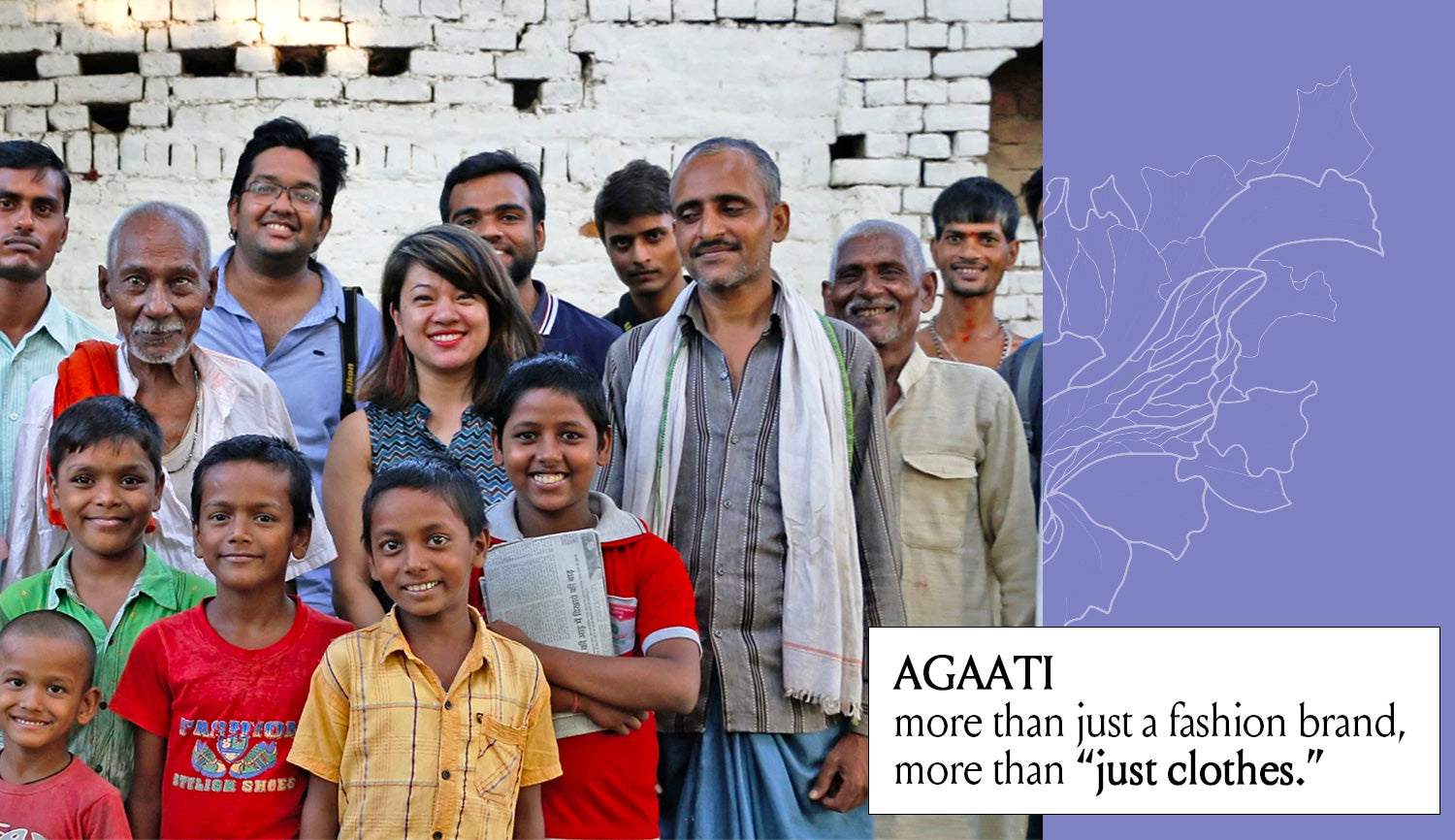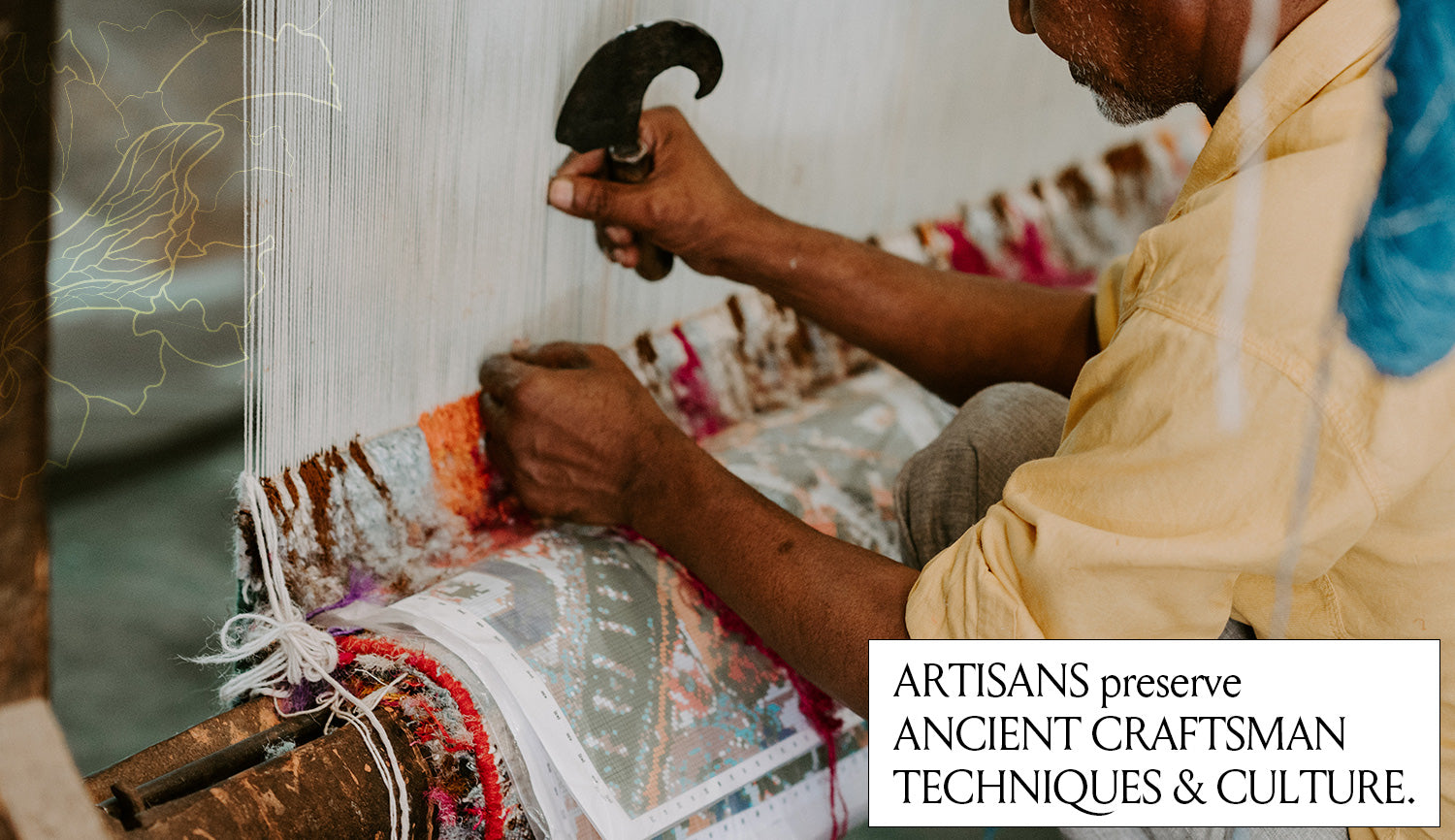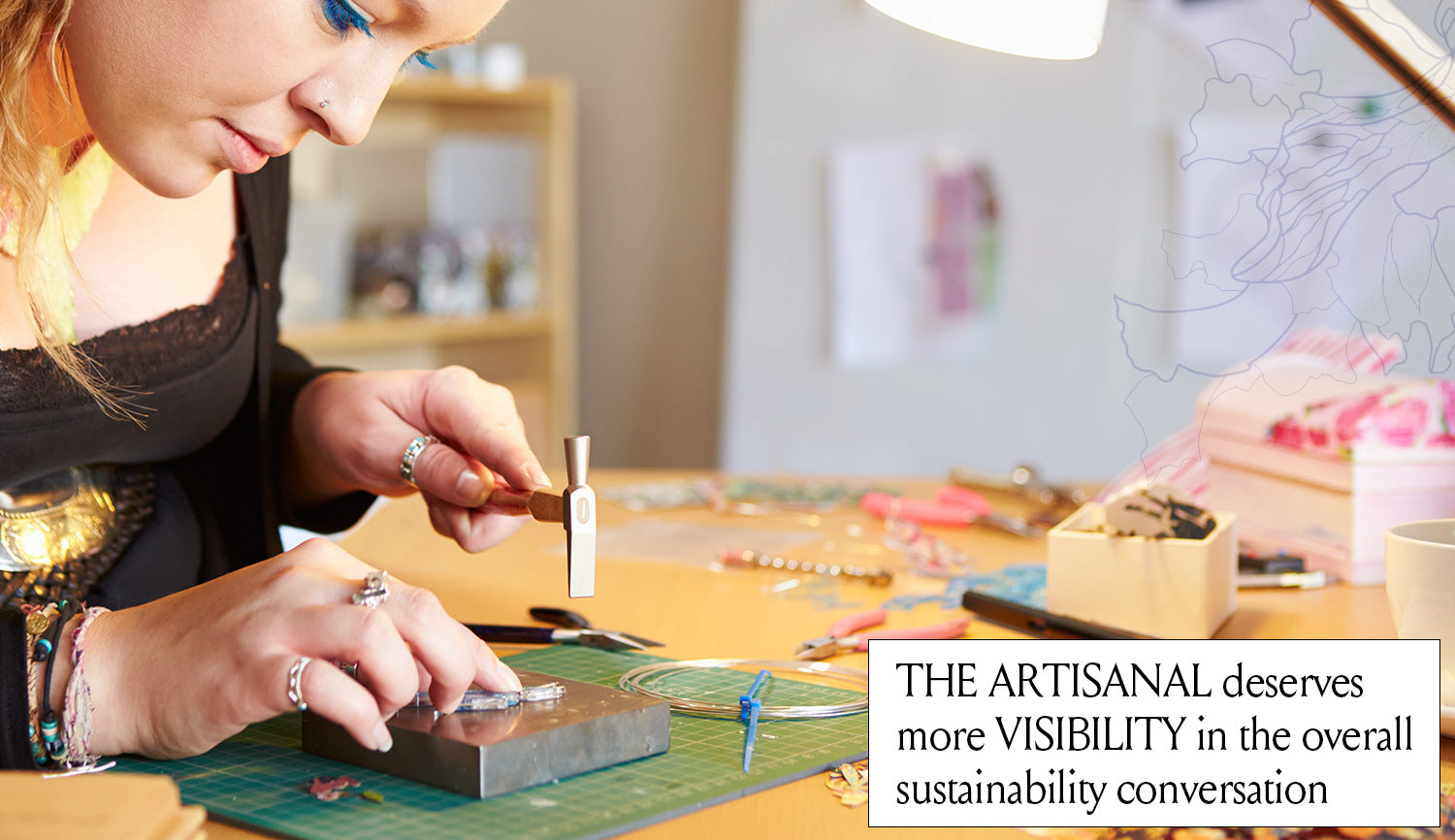The first article in the series about the Relevance and Resilience of the Global Creative Artisan Economy
By AGAATI and Anne Whiting. Contributed to by Meenu Devrani

We founded AGAATI with the vision to be more than just a fashion brand, more than “just clothes.” With our dream to celebrate artisanship, preserve exquisite craftsmanship, and perpetuate cultural maker heritage skills, AGAATI has grown to become a global narrative that elevates the meaningful presence of the hand behind the handmade—with the ultimate purpose of empowering the artisan economy.
Across the globe, artisan economies create millions of jobs while also preserving ancient craftsman techniques and culture. They promote healthy and sustainable businesses grounded in the uniqueness of people and their places. In India, for example—where, due to our own roots, we first began our artisan partnerships—it’s been said that to write about India handicrafts is almost like writing about the country itself. Perhaps because handicraft employs 16 million Indians, making it the second largest source of employment in the country after agriculture, and therefore making delicate artistry and craftsmanship fundamental backbones of the entire country’s well-being.
Of course, India is not the only country where this is at least somewhat true. Across the globe, homeworker (or craftsmanship) economies represent not just imperative sources of income but also beautiful cultural heritage and generations of family knowledge. (An estimated 71% of artisans work as family units, and 76% attribute their profession to the fact that they have learnt family skills.) These often overlooked workers can even bridge divides and promote world peace: in its report The Alliance for Artisan Enterprise, international think tank The Aspen Institute claims that in conflict regions, artisan work-based communities contribute to reconciliation, healing, and regrowth through their fostering of sustainable interdependencies between farmers, spinners, dyers, weavers, etc. (If we consider the example of the handloom industry.)

Handicraft is the invisible thread that holds so many communities together.
Our goal, then, is to create positive and deserved opportunities for the global artisan community.
At AGAATI, artisans are people, not just makers, and we aim to do business with them, not at their expense. Unfortunately, this mantra is not always the case in the global fashion supply chain. Domestic artisan markets across the world are usually subjected to low pricing and bargaining due to decreased perception of their value as handworkers, a perception that has left artisans with no marketing ability to uplevel their work and their compensation. Artisan supply chains everywhere are in critical danger despite their crucial roles to their various global communities.
There are a number of reasons for this. One is poor policies and bad implementations by governing agencies, and the lack of stricter policies and systems in place to authenticate content and quality. Another reason is the unethical payment practices by the large brands employing them: workers’ quality of life and the receipt of fair income is largely overlooked by the brands that collaborate with them. The Business of Fashion reported recently on the persistent undervaluing of artisan work by the global fashion economy, noting that “luxury embroidery done in India [or other less expensive countries] would cost 10-15 times more to produce in Europe,” but that “[these] artisans have been completely airbrushed out of the supply chain.”
Thirdly is the small size of orders that artisans fulfill, slowly and ethically. The handworker economy is not mass, machine-enabled production. It takes longer to produce fewer items that then cost more. It’s the antithesis of fast fashion.
As a result, craftsmanship economics are dying out. In India specifically, the United Nations has discovered that “over the past 30 years, the number of Indian artisans has decreased by 30%, indicating the need to re-invest in artisans to safeguard history, culture and an important source of livelihood.” This reinvestment became even more imperative throughout the shutdowns of Covid-19, during which time accounts were closed and business opportunities for underrepresented handicrafters came to a nearly full halt. Artisans are rarely compensated fairly for their work even in good economic times. During the pandemic, artisans around the world were deeply affected and some economics are still trying to revive.

The hand behind the handmade and the artisanal deserves more visibility in the overall sustainability conversation. Rebecca Reubens, author of the book "From Green Design to Sustainable Design" has remarked that truly sustainable design will innovate to responsibly integrate the social, economic, ecological and cultural aspects of clothing production and procurement. This is the holistic and healthy approach that will lead us toward positive new frontiers in fashion design which reflect the cultural and social traditions of the communities wherein they were created. AGAATI hopes to serve as an example for all brands by building supply chain relationships that are more than just transactional in nature. We hope to challenge the fashion industry’s various stakeholders to understand the role they play in strengthening this essential artisan economy.
Artisanal products offers people a renewed appreciation and understanding for their purchases—and the power of choice that customers have to make a positive impact in the world. When we buy one handmade product, we are positively impacting many families associated with the making of it, causing a cascading effect of well-being for all the participants in the ecosystem. AGAATI fashions highlight the importance of traditional knowledge while engaging in best practices based on equity, dignity, all the while giving back to the communities we work with. This is part of why we host our bi-annual trips to our Indian sourcing origins: so that we can foster connections between our wearers and the people who make their clothing, so that they are never without awareness of the significance of #WhoMadeMyClothes.
We learn so much from our artisan friends everyday. These makers—the humans, that is—behind our brand are as much a part of our heritage as their craft. Stitched into our handmade clothing is the story of human origins and wellbeing.
We will continue to illuminate our conviction about the importance of supporting artisan communities, to show curious customers and fashionistas the human hand and creative minds behind one-of-a-kind designs, and remember how these are interconnected with the local culture and nature.
We believe in a global artisan economy in which everyone thrives together. For which reason, we have launched our Global Eco Artisan Awards. More on the next awards date in coming months.
Until then we would love to hear how together we can build a stronger artisan economy and celebrate, champion the talented craftspeople of the world.... to be continued!



Candra Day
This is a beautiful, well-thought-out beginning to what I hope will become a robust dialogue among artisans and artisan supporters and artisan customers about the future of the artisan sector. Hooray for Agaati for framing the question so well. I’m writing a reply today and hope others will, too. Thank you, Agaati!
Candra Day
This blog expresses so eloquently our goals and vision at Vista 360°. Agaati is really leading the way for more collaboration among artisans and artisan support groups, which we believe is the next step in the development of artisan enterprises. Thank you!!! I’d like to add that we think it’s vital to link this movement to the United Nations Sustainable Development Goals and the UN Agenda 2030. This work is completely aligned with the goals (especially #1, #8, #12 and #17) but 300 million artisans worldwide are barely mentioned in their strategies. I hope we can become more visible in their global agenda and that the work that Agaati is so ably leading can become part of the UN effort.